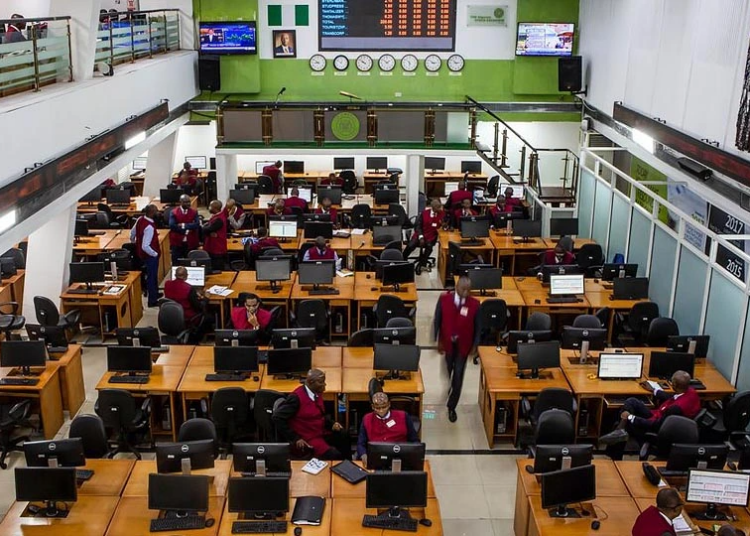The Nigerian stock market dropped by N650.5 billion in February, 2024 as investors divested into the Treasury Bills (T-bill) market.
Investors pulled out from the stock market in February 2024 over the attractive yield of the Central Bank of Nigeria (CBN) on T-bills as the inflation rate increased to 29.9 per cent in January 2024.
Specifically, the overall market capitalisation closed February 29, 2024 at N54.707 trillion, dropping N651 billion from N55.358 trillion it opened trading for the month.
Also, the Nigerian Exchange Limited All-Share Index (NGX ASI) dropped to 99,980.30 basis points as of February 29, 2024, a decline of 1.16 per cent from 101,154.46 basis points it opened for trading in the month under review.
The stock market in January 2024 gained N14.4 trillion and 35.29 per cent in market capitalisation and NGX ASI, respectively as investors invested in fundamental stocks in anticipation of dividend payout and hedging against the double inflation rate. This brings the investors’ return in the first two months of 2024 to N13.79 trillion.
The CBN in February sold N1.58 trillion worth of T-bills to the investing public at a 19 per cent interest rate to mop up excess liquidity in the financial system. All tenors of its last auction were oversubscribed- a clear sign of the voracious appetite of investors in the security.
The CEO, Wyoming Capital and Partners, Tajudeen Olayinka, said the stock market is now in a repricing mode because of interest rate hike and continued issuances of one-year Treasury bills at high effective yield of over 20 per cent. So, we are witnessing a shift to the fixed income market.
The managing director, ARM Securities Limited, Rotimi Olubi said, the high fixed-income yield is driving traction from the equities market to the fixed-income market.
“We expect this to be sustained in the short term given the recent 400 basis points hike in interest rate. However, this presents an opportunity for investors to enter into the equities market at a cheaper price in order to lock in on dividend payments in the coming months,” he stated.
Capital market analysts expect the stock market downward momentum to persist in March following the CBN move to tackle rising inflation rate.
Analysts at Cordros Research stated, “before the MPC meeting, they noticed that the increase in yields in the T-bills market reduced interest in the stock market, particularly among domestic institutional investors.”
According to them, following the unexpected 400 basis points hike in the MPR by the MPC, we anticipate a further negative impact on the equities market performance in the short term. Indeed, the stock market closed with a 1.4 per cent decline today, likely due to negative sentiment from investors, as rising fixed-income yields typically reduce the appeal of equities.
To them, “Overall, the MPC’s hawkish stance is expected to further heighten risk-off sentiments in the local market, as domestic investors, who make up the majority of market participants (c.92.0per cent as of January 2024), may opt for safer assets amid rising fixed income yields.
“Consequently, we anticipate a prolonged bearish market trend driven by yield movements and the uninspiring corporate earnings reported thus far.”
On market outlook, the chief operating officer of InvestData Consulting Limited, Ambrose Omordion said: “we expect bearish sentiment to continue as players digest the outcome of MPC decision and take advantage of the pullbacks in the face of expected audited corporate earnings and ongoing portfolio rebalancing.
“This is amidst the volatility and pullbacks that add more strength to upside potential. As such, investors should take advantage of price correction. Also looking at the trends and events across the globe and domestically.”





